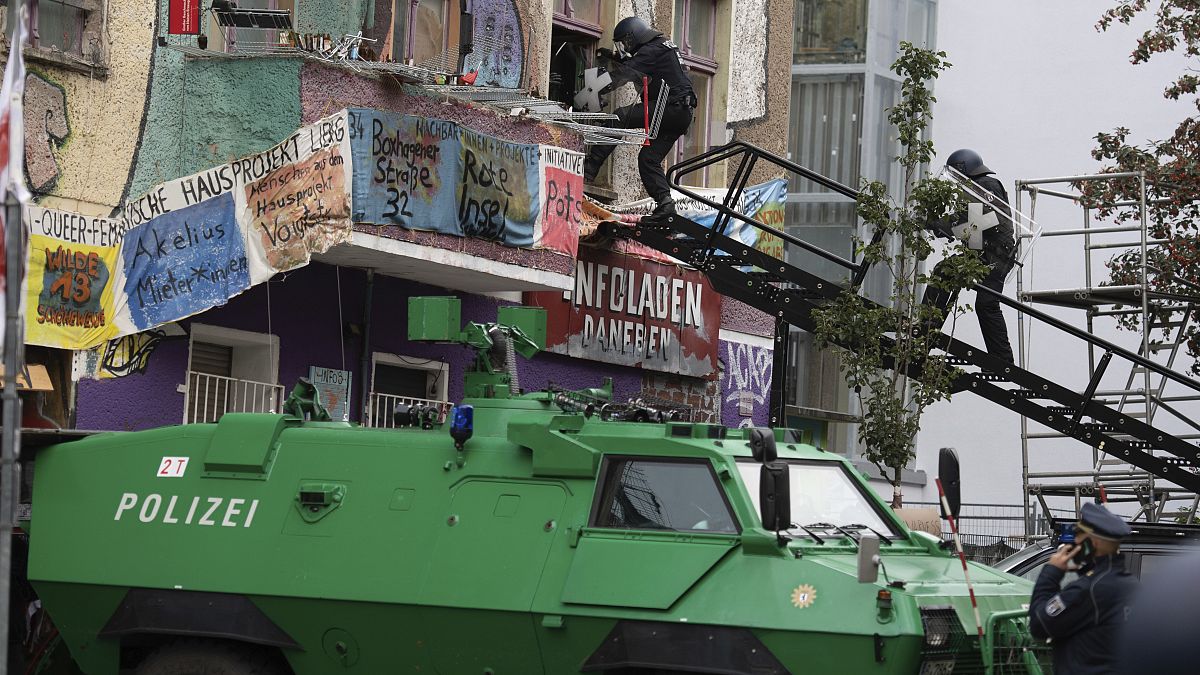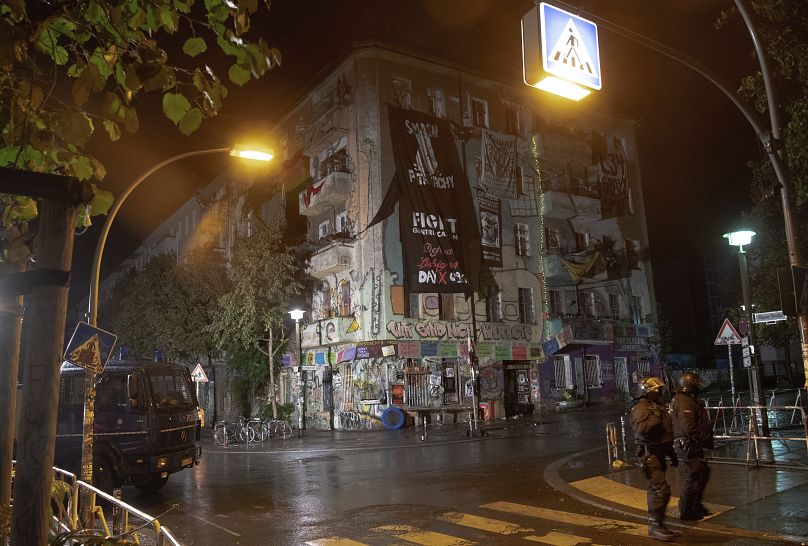Inhabitants say they have grown angry with soaring rents in the German capital.
Police in riot gear have cleared out the notorious Liebig 34 squat in Berlin.
They entered the building after residents refused to open the door for a court employee to deliver their eviction notice.
Inhabitants say they have grown angry with soaring rents in the German capital.
Police spokesman Thilo Cablitz said 1,500 officers were called to assist in the eviction. Authorities said they only encountered passive resistance from residents as they carried people individually down a firetruck ladder.
"They are becoming homeless," Moritz Heusinger, the lawyer for the Liebig34 collective, told AFP news agency.
"It goes against human rights to throw people out onto the street in the middle of a pandemic when they cannot pay their rent."
Some of the tenants pumped their fists in the air as they were led out from an upper level by police, while others forced police to carry them out.
An armoured car was also stationed in front of the graffiti-covered building, as police kept onlookers at a wide distance.
A number of supporters of the residents threw firecrackers and bottles at the police, but Cablitz reported that other protests had been peaceful.
The famous squat is named after its address, Liebigstrasse 34, in Berlin's eastern Friedrichshain neighbourhood, and was a symbol for the left-wing scene, housing around forty women, trans and intersex people since 1999.
The building has been partially occupied for 30 years and has been subject to numerous court battles before the residents were finally ordered out of the apartments.
German police had prepared themselves for clashes, which broke out during stormy eviction attempts in the 1990s.
After the fall of the Berlin Wall, blocks of abandoned houses in the east of the capital were taken over by students, artists, and activists, with occupations later legalised.

